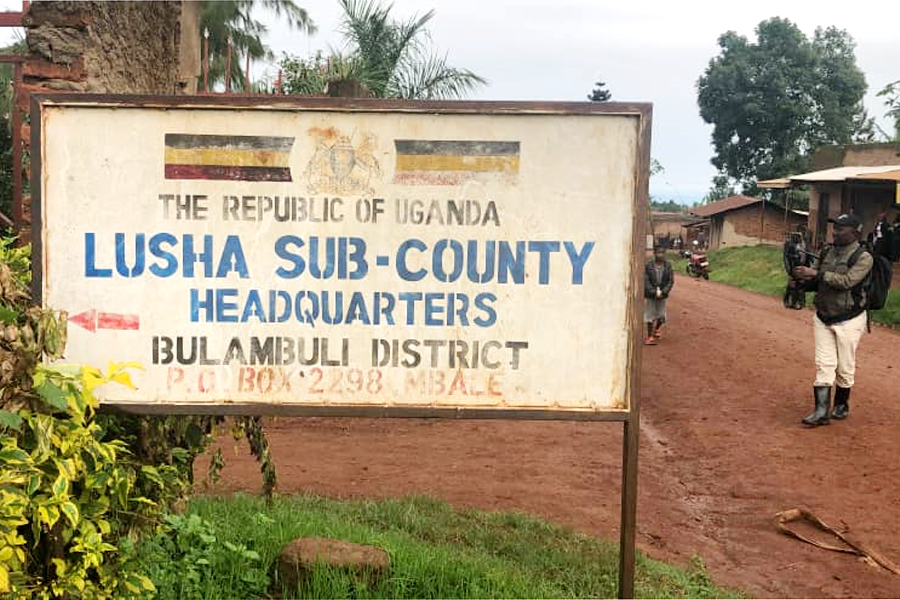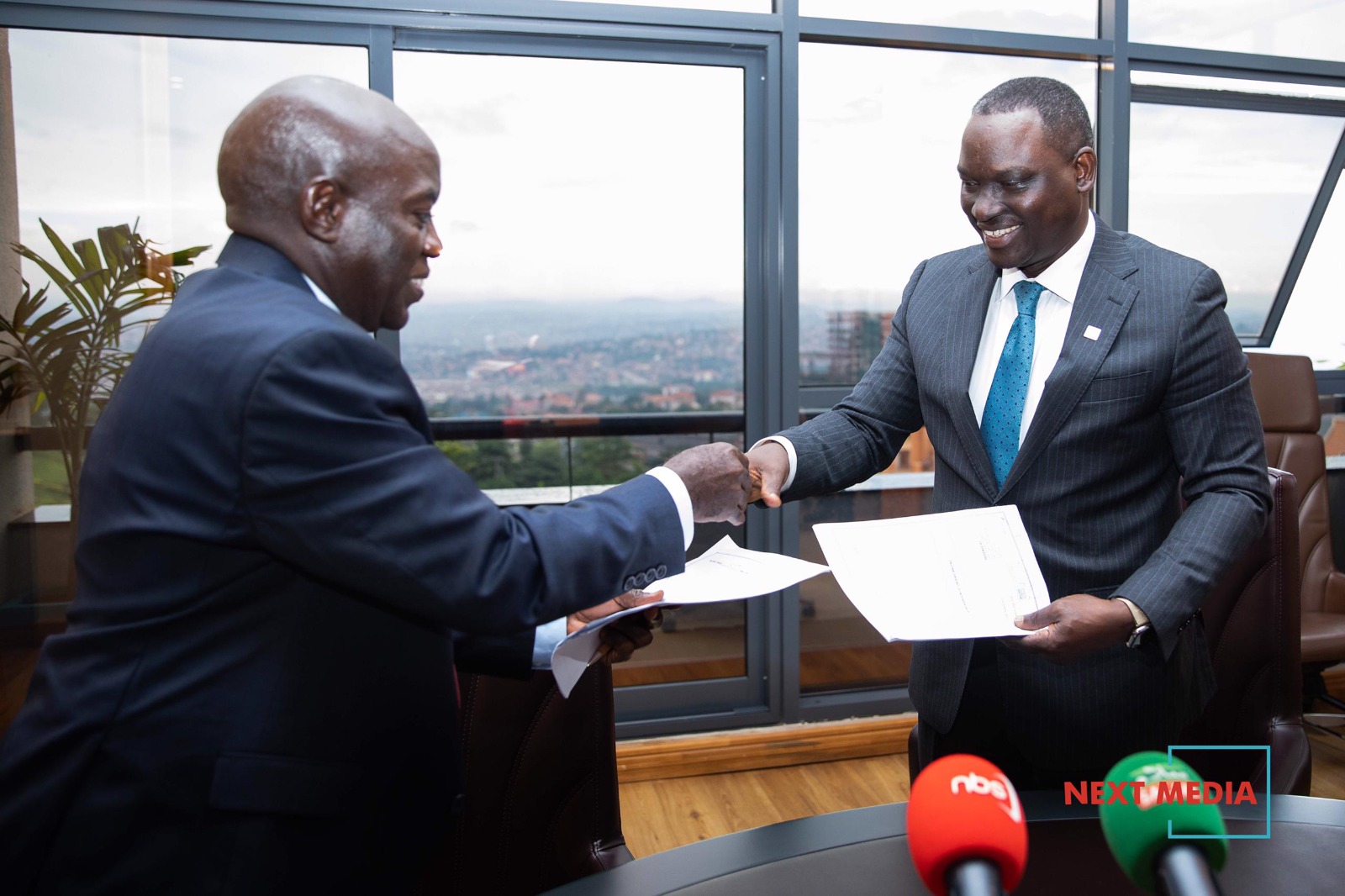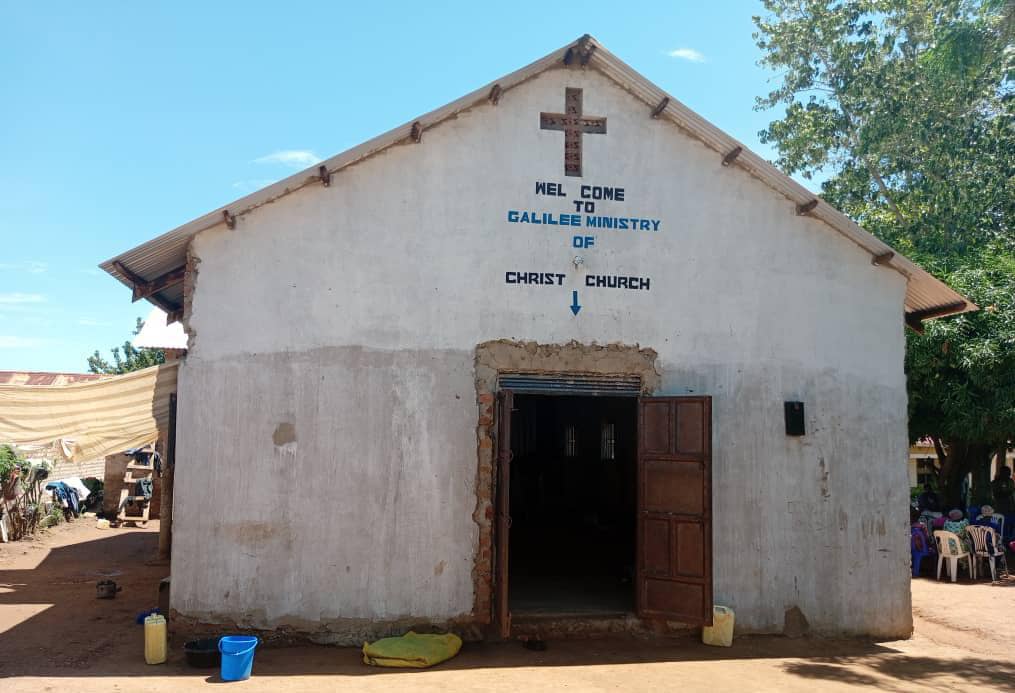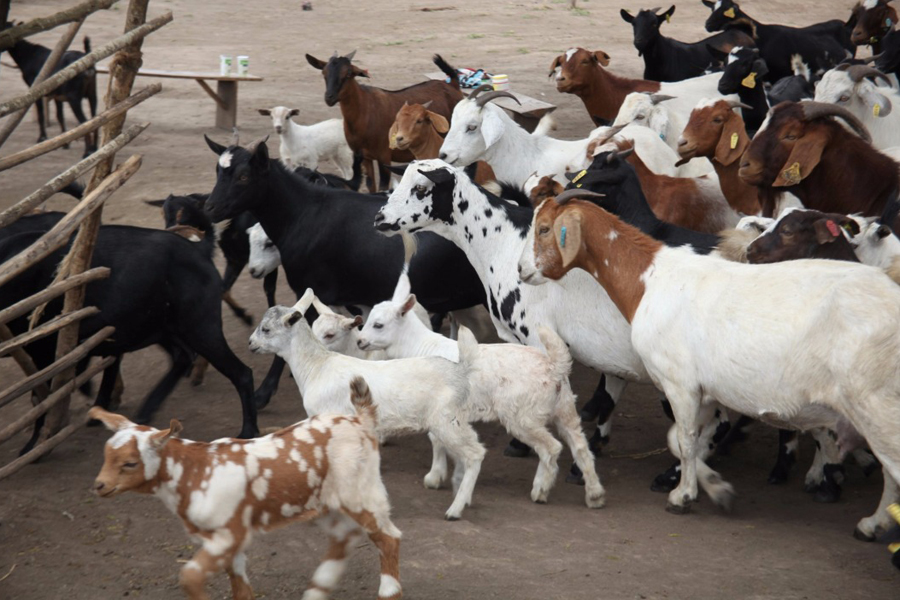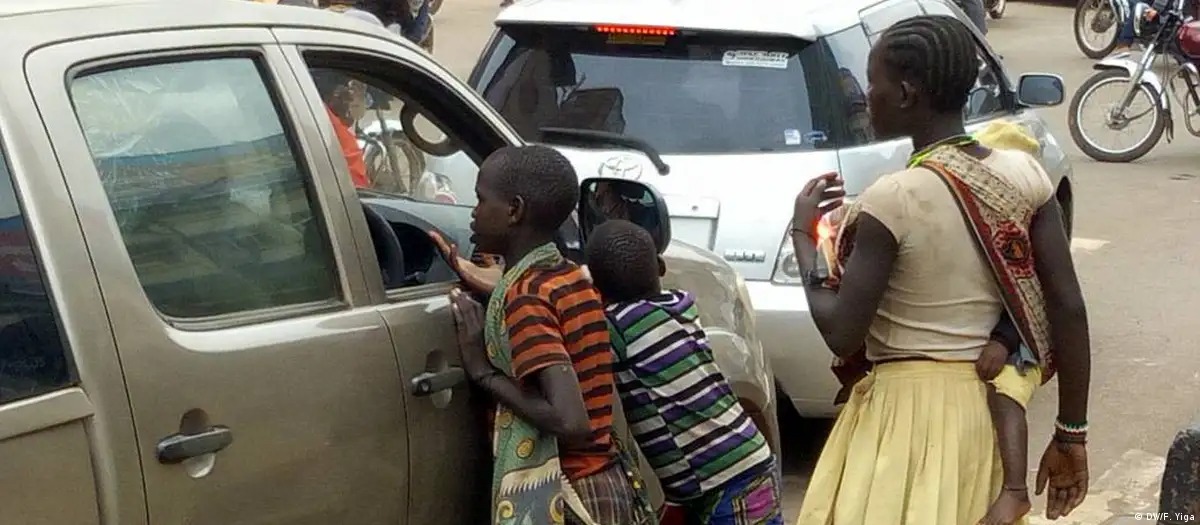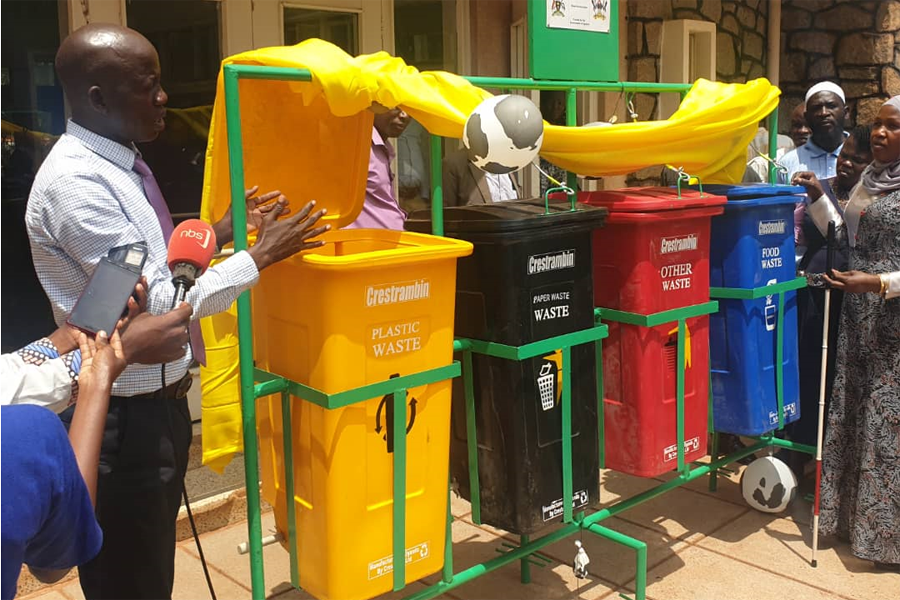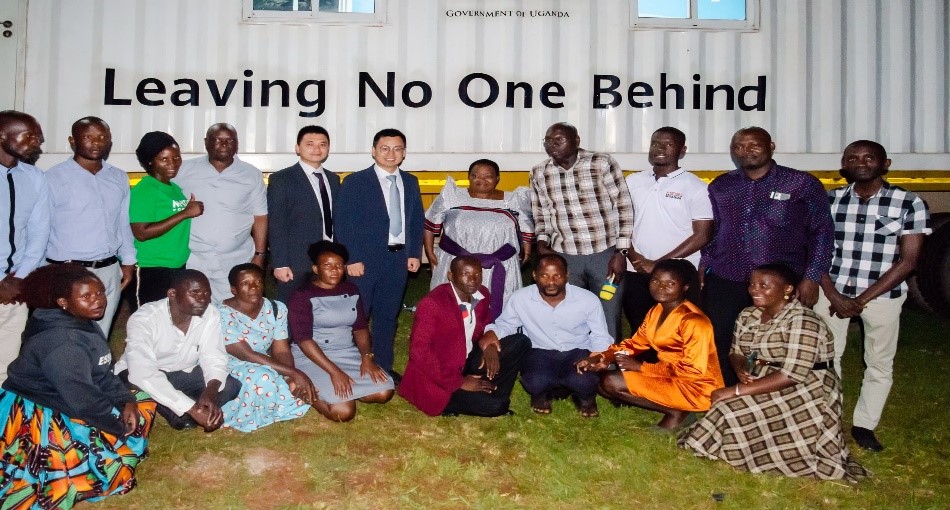50,000 Russian soldiers confirmed dead by BBC
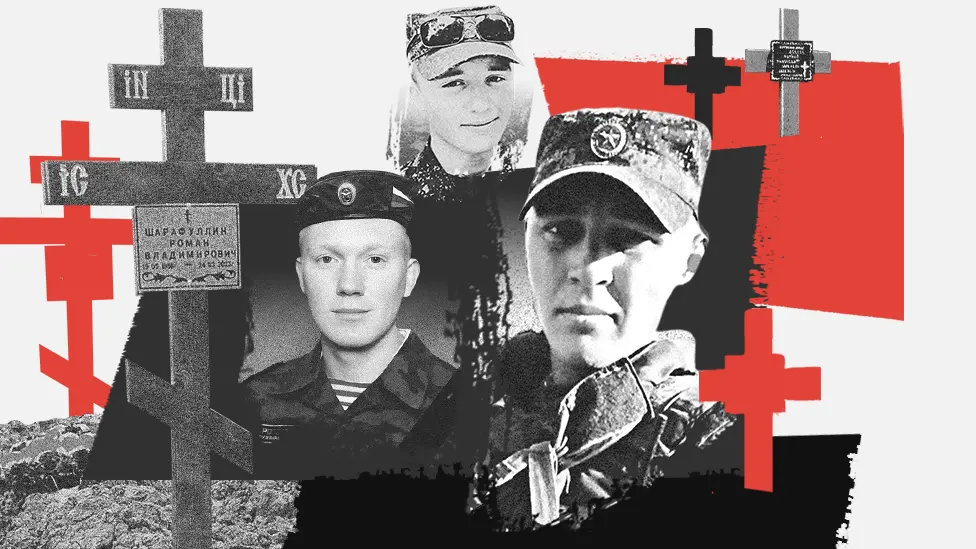
BBC NEWS | Russia's military death toll in Ukraine has now passed the 50,000 mark, the BBC can confirm.
In the second 12 months on the front line - as Moscow pushed its so-called meat grinder strategy - we found the body count was nearly 25% higher than in the first year.
BBC Russian, independent media group Mediazona and volunteers have been counting deaths since February 2022.
New graves in cemeteries helped provide the names of many soldiers.
Our teams also combed through open-source information from official reports, newspapers and social media.
More than 27,300 Russian soldiers died in the second year of combat - according to our findings - a reflection of how territorial gains have come at a huge human cost.
Russia has declined to comment.
The term meat grinder has been used to describe the way Moscow sends waves of soldiers forward relentlessly to try to wear down Ukrainian forces and expose their locations to Russian artillery.
The overall death toll - of more than 50,000 - is eight times higher than the only official public acknowledgement of fatality numbers ever given by Moscow in September 2022.
The actual number of Russian deaths is likely to be much higher.
Our analysis does not include the deaths of militia in Russian-occupied Donetsk and Luhansk - in eastern Ukraine. If they were added, the death toll on the Russian side would be even higher.
Ukraine, meanwhile, rarely comments on the scale of its battlefield fatalities. In February, President Volodymyr Zelensky said 31,000 Ukrainian soldiers had been killed - but estimates, based on US intelligence, suggest greater losses.
Meat grinder tactics
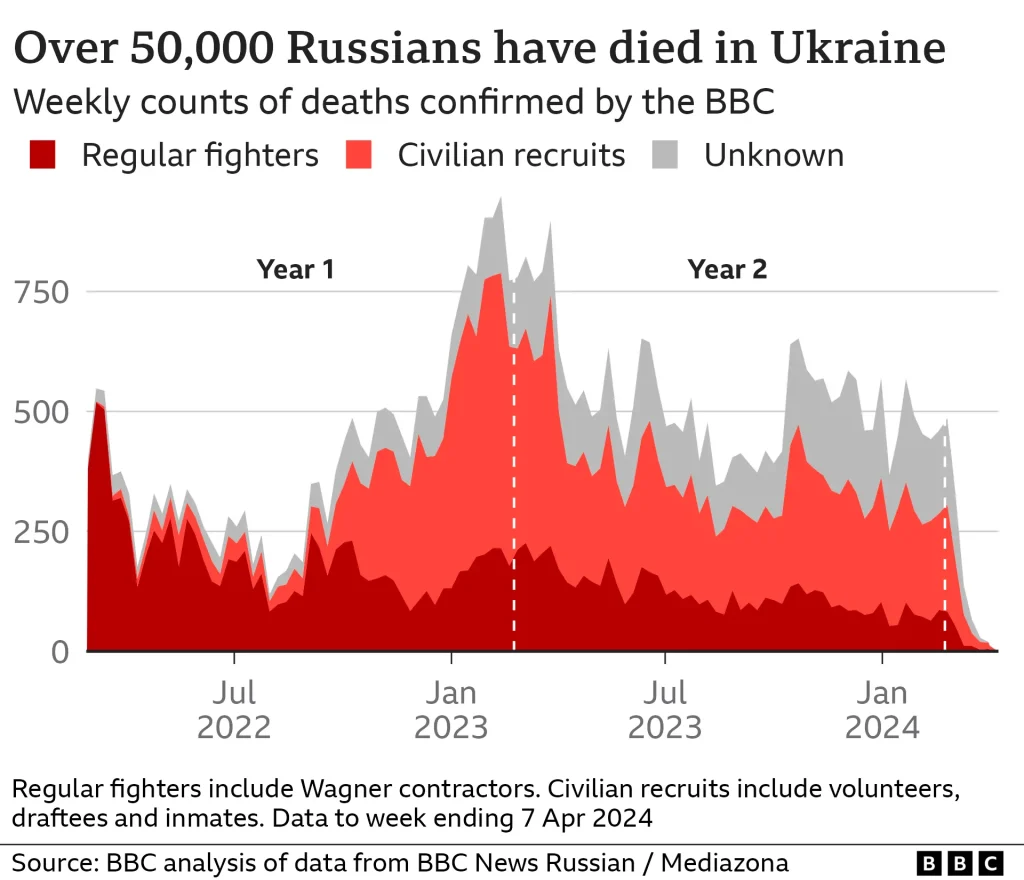
The BBC and Mediazona's latest list of dead soldiers shows the stark human cost of Russia's changing front-line tactics.
The graph below shows how the Russian military suffered a sharp spike in the number of deaths in January 2023, as it began a large-scale offensive in the Donetsk region of Ukraine.
As Russians fought for the city of Vuhledar it used "ineffective human-wave style frontal assaults", according to the Institute for the Study of War (ISW).
"Challenging terrain, a lack of combat power, and failure to surprise Ukrainian forces", it said, led to little gains and high combat losses.
Another significant spike in the graph can be seen in spring 2023, during the battle for Bakhmut - when the mercenary group, Wagner, helped Russia capture the city.
Wagner's leader, Yevgeny Prigozhin, estimated his group's losses around that time to be 22,000.
Russia's capture of the eastern-Ukrainian city Avdiivka last autumn also led to another surge in military deaths.
Counting graves
Volunteers working with the BBC and Mediazona have been counting new military graves in 70 cemeteries across Russia since the war started.
Graveyards have been expanded significantly, aerial images show.
For example, these images of Bogorodskoye cemetery in Ryazan - to the south-east of Moscow - show a whole new section has appeared.
Pictures and videos taken on the ground suggest most of these new graves belong to soldiers and officers killed in Ukraine.
____________________________________________________
You can read the full report on the BBC here





